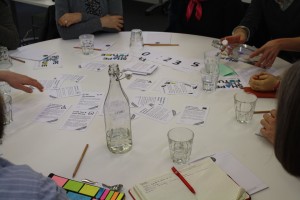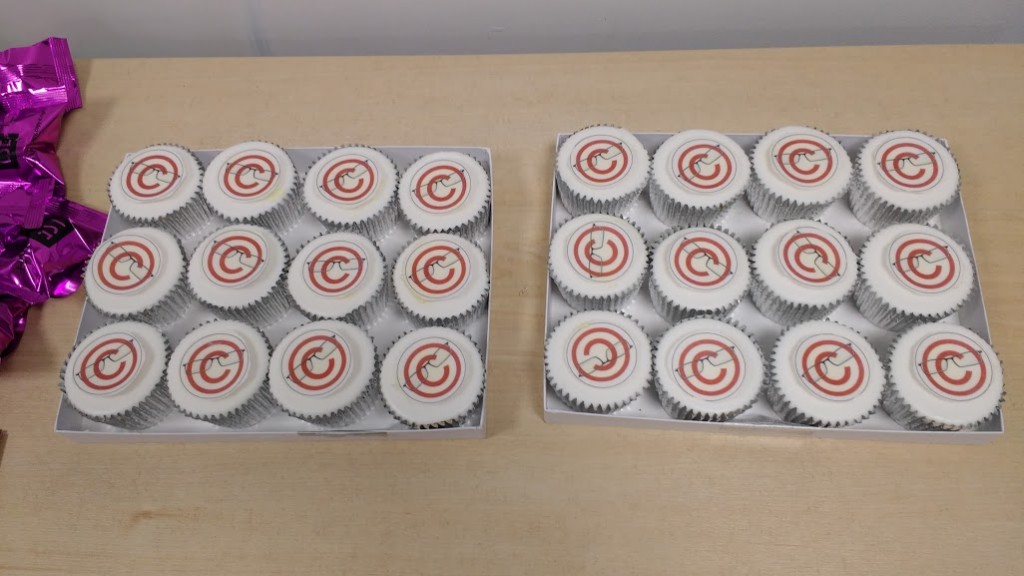It’s been a bit quiet on the Kent copyright literacy blog front, but that doesn’t mean I’ve been sitting here twiddling my thumbs since the last post. In fact I’ve been thinking, talking and writing about copyright with a whole range of colleagues, peers and (much to their dismay) even some friends and family members. Outside of the day job I’ve been working away on the second edition of my research partner Jane’s book Copyright and E-learning (Facet). We’re getting close to finishing it, but I’ve found it a really interesting experience to be in the office, doing my work for Kent, and then being able (aka contractually obliged) to spend time away from the office reflecting on what I have been dealing with in a way that’s hopefully helpful to others as well. Only time will tell if we’ve been successful at this, but it’s been great fun (relatively speaking) so far.
I’ve also been involved with the negotiations for the CLA’s higher education licence as part of the UUK / Guild HE Copyright Working Group which is both challenging and fascinating (once again, relative to how involved you are in copyright and licensing). This is neither the time nor the place to discuss this process in detail but I’m hopeful we are on the road to coming up with something helpful to teachers and students, both now and in the future.
Getting back to the project, it’s been really good to join up the research that Jane and I have been doing with the work to embed copyright literacy at Kent. Our paper on UK library, information and cultural institution professionals’ levels of copyright literacy was published just before Christmas in the peer reviewed journal Library and Information Research. The limitations of the quantitative approach led us to ask a number of questions about the way copyright issues are experienced by those working in institutions. I was also invited to a number of meetings with academic colleagues who are trying to get to grips with copyright as it relates to learning and teaching.

I was pleased that we were able to untangle a few issues, and I even got the opportunity to show some of them the copyright cards. However I’m convinced there’s more we can do to make things even clearer for those who have the challenging responsibility for putting together quality teaching materials and doing it ethically with limited time and resources.
In parallel with this I ran two really enjoyable workshops with my Kent colleagues at the end of last year, considering the types of people we work with and support, and what views they have on all this stuff. We had quite a bit of fun coming up with some user experience (UX) personas, and I’d like to give thanks to my colleague Jonathan from our UX team for his help as well as Clair and Sue who helped run the sessions. However the real value of this was in making us think about what we currently say and do, and what more we could do to help people. Key to this is about how we communicate messages about copyright in the right place and the right time. There’s a bit more thinking to do before we’re ready to share what we came up with, but I think we’ve made great progress.
Finally, Jane and I ran the first of our focus groups with library colleagues to discuss copyright literacy in more depth, taking a ‘phenomenographic’ approach and of course eating copyright branded cakes. You may never have heard of phenomenography, and until last year neither had I, but it makes sense to me because it isn’t about working out whether people working with copyright understand it in the ‘right’ way, but about the way things actually are. Effectively the relationship between the subjects (the people who work with copyright issues) and the phenomena (copyright law and the licensing framework) as they are experienced. And if that doesn’t make much sense then I guess you’ll have to wait until we finish the research and present it at the LILAC conference in March.
Thanks for your time if you’ve made it this far, and may copyright literacy be with you always.

